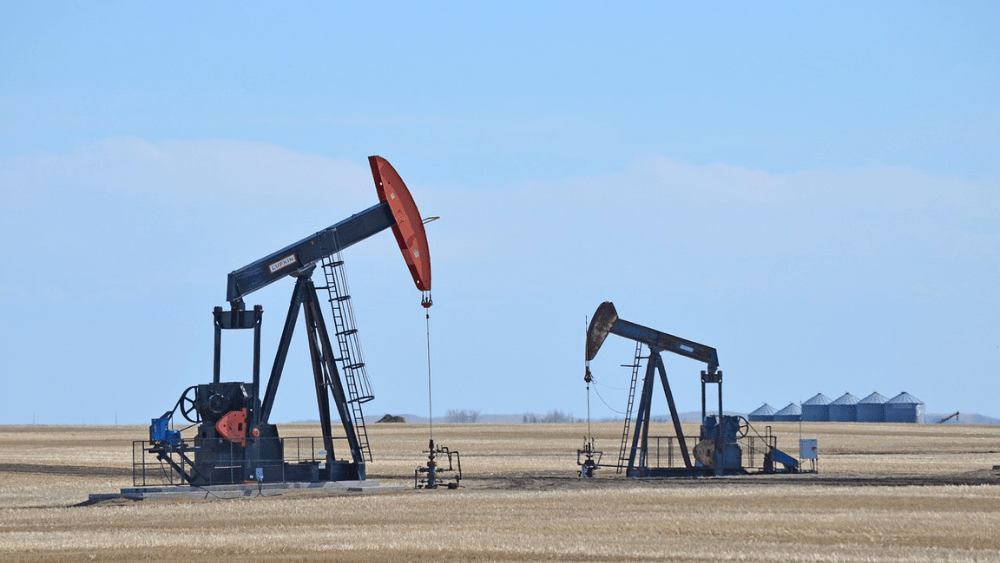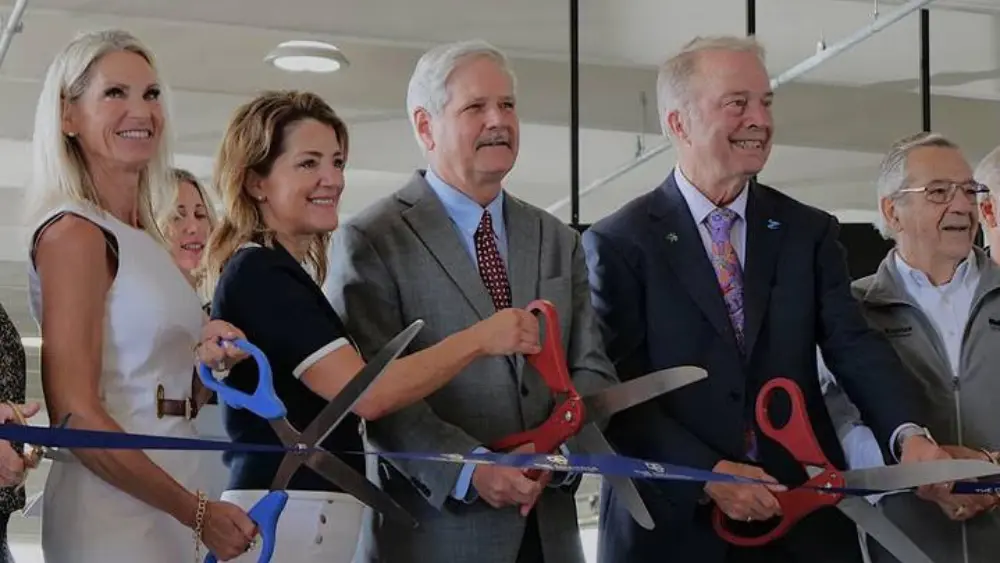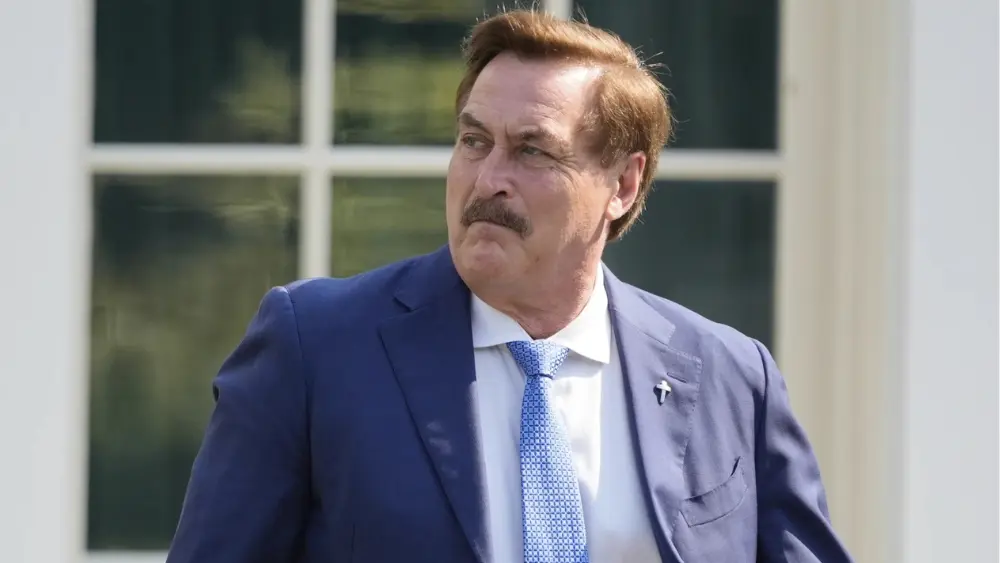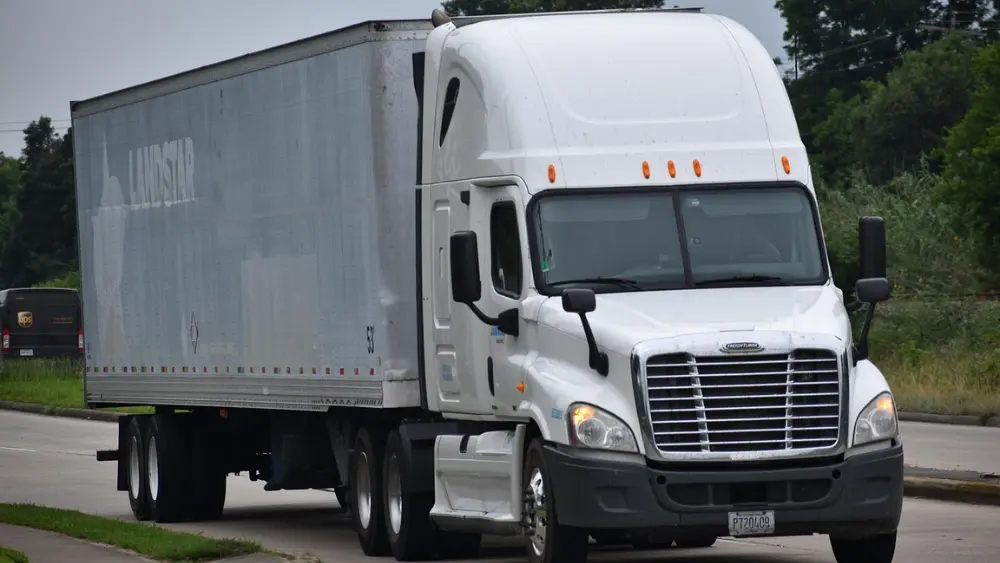North Dakota’s winter winds often bring an icy blast to the Bakken, but the state’s energy leaders say the winds of change that are blowing are warm and welcomed.
McKenzie County Commissioner Joel Brown says with Donald Trump’s decisive electoral win in the 2024 election, a new administration stands ready to open the faucet of oil and natural gas.
Brown, appearing on the What’s On Your Mind program on The Flag previewed the new administration’s expected approach to oil and natural gas production. Brown has extensive experience designing and operating oil wells and managing pipeline systems. However, he’s spent most of his career on Acquisition & Divestment teams and helped develop the only Bakken-specific mineral tracking software on the market.
Brown said Trump’s win was greeted enthusiastically in the industry.
“I think that immediately following the news of Trump’s election, you just felt a major sigh of relief across the industry. Under the Biden administration, there was just always so much uncertainty over what was going to happen. You didn’t know what was the next thing that he was going to throw at the industry to hamper production and development. There was so much negative rhetoric along with his actions.”
Trump spoke about oil, coal, and natural gas often on the campaign trail, and his transition team is reportedly putting together a wide-ranging energy package to roll out within days of his taking office. Reuters reports that the program would approve export permits for new natural gas projects and increase oil drilling off the U.S. coast and on federal lands.
Trump has also indicated he would seek to approve the Keystone Pipeline, an issue that was an environmental flashpoint and which was halted after Biden canceled a key permit on his first day in office. But any company looking to build the multibillion-dollar effort to carry Canadian crude oil to the U.S. would need to start from scratch because easements have been returned to landowners. It may be a ceremonial move as much as anything, but the fact that Trump has indicated he’ll make these sweeping changes on day one is encouraging to Brown.
“I think the very first thing that we recognize is that we get to live in an environment of certainty; an environment that’s going to be pro-oil and gas and pro-US energy. And that brings more confidence from investors, and more confidence from operators to make long-term plans for their development. So much of the hindering of the oil and gas industry has really been around this war on pipelines, which has been completely illogical and asinine because it’s the most safe and environmentally friendly way to transport these liquids.”
Trump has also been clear that he will repeal many of the Biden-administration’s executive orders on fossil fuels and seek to roll back some of Biden’s climate laws and regulations, such as tax credits for electric vehicles and clean power plant standards that would have effectively phased out coal and natural gas.
“As investors, Wall Street, and private equity individuals, who ultimately are placing their dollars to develop a new well in the Bakken,” said Brown, “if you don’t have a long-range expectation that you’re going to be able to continue to operate, produce, and drill in the way that’s going to be capitally efficient, your capital is at risk. And so you look at oil and gas development with a different risk profile than you do other prospective investments that are vying for your investment dollars. So, when we live in an environment of certainty, you get to plan a little longer range.”
In Trump’s defeat of Kamala Harris, in the 2024 presidential election, he bested a long-time critic of fossil fuels who moved quickly to the middle during the campaign. Brown is skeptical that Harris would have truly governed from the middle when it comes to drilling and fracking, and has little appreciation for the innovation in energy development.
“We’ve been developing horizontal Bakken wells in North Dakota as early as 2003, so we’ve got over 20 years of development that have proven that we have an asset here that is productive. It’s also profitable and it’s the cleanest oil in the nation. And I think we do a tremendous job here of being stewards of the immediate environment around us. We still have decades worth of drilling to be done in the Williston Basin. What we’ve seen recently over the past few years is that more of the very core acreage, the best rock in the Bakken has largely been drilled out. What we’ve seen with technology improvements and new three- and four-mile laterals that are now being attempted, is we’re unlocking areas of the Bakken that we previously didn’t think were going to be economic. So, we have a lot of running room in front of us.”
According to U.S. Department of Energy figures, U.S. crude-oil production averaged 12.9 million barrels a day last year, eclipsing a previous record set in 2019 under Trump. Brown says the industry was successful despite the Biden administration’s efforts to stall domestic energy production.
In January of 2023, the State of North Dakota filed suit against the federal Bureau of Land Management for discontinuing quarterly sales of oil and gas leases on public lands in North Dakota. District Court Judge Daniel Traynor, two months later, found in favor of the state, saying that BLM “very likely violated its mandatory statutory duties to plan and timely complete mandatory analyses of individual parcels in North Dakota” for oil and gas lease sales on federal lands.
Governor Doug Burgum applauded the ruling at the time, saying, “It should not take a court order to compel the Biden administration to obey the law, or to have the BLM do what it has been directed by Congress to do, but in this case it did, and we applaud Judge Traynor’s order which requires BLM to resume their lawfully required quarterly oil and gas lease sales.”
Burgum has since been tapped by Trump to serve in his administration as U.S. Secretary of the Interior and chairman of the newly formed National Energy Council, pending Senate confirmation. Brown says having timely lease auctions will have a positive impact on the regional industry, and having Burgum a major player in the effort, will be massive for North Dakota energy producers.
‘We have approximately 1 million acres of national grasslands managed by the US Forest Service in Western North Dakota, and some of these places are within prolific areas of the Bakken, where the development of three-mile laterals is making them really attractive places to drill. And what we saw under the Biden administration was attempts to shut down leasing completely on federal acreage. At the County Commission just last year we had new proposed rules on the development of minerals under the grasslands placed on our desk and if I recall correctly, I think it was about 1400 pages, and we were asked to give comments in 30 days. So even though he didn’t have the ability to get done probably what he would’ve wanted to legislatively, he used the executive branch, through the US Forest Service and Department of Interior, to lay the groundwork for these rules that were really going to hinder long-term development in Western North Dakota.”
Reuters reports that Biden put a freeze on new LNG export permits in January to study the environmental impacts, in an election-year move aimed at making gains with the party’s green voting bloc. Without the export permits, developers cannot proceed with construction plans for new projects. Projects delayed include Venture Global’s CP2, Commonwealth LNG, and Energy Transfer’s Lake Charles complex, all of which are in Louisiana.
The United States is the world’s top producer of natural gas and there are five U.S. LNG export projects that have been approved by the Federal Energy Regulatory Commission but are still awaiting permit approvals at the Department of Energy, federal records show.
Brown expects all that to change quickly after Trump takes office.
“I feel a ton of confidence that we’ve got Governor Burgum stepping into the role of leading the Department of Interior, which will have a direct impact, knowing that he’s really aware of what was proposed under the Biden administration and can right the ship on that.”
Fox Business reports that Trump is also expected to put pressure on the International Energy Agency (IEA), the Paris-based energy watchdog that advises developed countries countries on energy policy. The IEA has drawn sharp criticism from Republicans who say the agency has ignored the benefits of fossil fuels while promoting unproven emissions theories as part of green energy advocacy. Trump’s advisers have urged him to withhold funding unless the IEA takes a more pro-oil position.
Separately, Trump has promised to declare an energy emergency on his first day in office and has also indicated he will call on Congress to provide funding to replenish the nation’s Strategic Petroleum Reserve; the nation’s emergency crude oil supply. The reserve was depleted under Biden to help manage price spikes during the first three years of his term. Replenishing the reserve would boost short-term oil demand and encourage U.S. production.
A Watford City native, and Watford City High School graduate, Brown has a unique perspective on how local mineral rights holders have been affected by recent energy policy. And while the drillers and transporters have certainly been held back by the green agenda in Washington, D.C., he says local families have been adversely affected as well.
“I know some of the mineral owners who have their private minerals pooled together with the federal minerals down in these areas and ultimately have been looking over the fence at their neighbors who have been able to see development taking place on their acreage. So, the hurdles to developing these federal areas, especially under the Biden administration, have really had a negative impact on those landowners. So, for the private mineral owners whose lands have been impacted and their royalties or minerals haven’t been able to be developed, it’s going to have a major impact.
North Dakota’s oil production climbed to just under 1.2 million barrels per day in September. And while Brown doesn’t see that moving as high as 2 million barrels a day anytime soon, he does see tremendous upside from the lower cost of opening a well.
“One of the things that I love to say is that when I started in this industry in 2013, we were drilling Bakken wells for $10 to $12 million for a two-mile lateral. Today, even though we’re in a time where inflation has been rampant and the cost of everything seems to have doubled, we’re now drilling those same wells for $7 to $8 million dollars. So, the cost efficiency in the oil and gas industry has driven further development, and it’s been incredible to just witness it take place over time.”
And Brown says when you combine that kind of innovation and a friendly D.C. administration, good days are ahead.
“It’s going to have a major impact on McKenzie County and the state of North Dakota. Over half of the tax dollars collected in the state come directly from the oil and gas industry. And so, to have this million acres in Western North Dakota that has been largely off limits for development, and to now have some of the red tape cut and removed in a way that’s ultimately clean and positive and works well with agriculture and the landscape, under a Trump administration, is going to bring a really positive impact for our region and for our state.”





